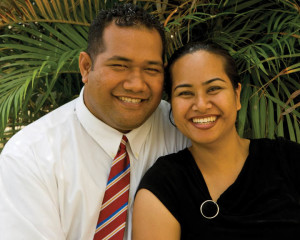 The January 2013 issue of the Ensign, a magazine for adult members of The Church of Jesus Christ of Latter-day Saints, contains an interesting article on the subject of faith and intellect. This magazine serves those who are sometimes called Mormons and most of the articles are written by church members who share how they practice their beliefs in ordinary life.
The January 2013 issue of the Ensign, a magazine for adult members of The Church of Jesus Christ of Latter-day Saints, contains an interesting article on the subject of faith and intellect. This magazine serves those who are sometimes called Mormons and most of the articles are written by church members who share how they practice their beliefs in ordinary life.
Faith and Intellect is written by Melissa Wei-Tsing Inouye, who has a PhD in Chinese History. She traces her struggles to unite her intellectual studies at Harvard University with her faith as a Mormon. The issue first came to her attention in high school, when a teacher asked her to provide a rational explanation for her faith. At the time, she was unable to do so and in fact, still lacked a strong personal testimony. She still leaned on the testimony of her family. However, Mormonism teaches its members that this is a good starting point, but that in time each person needs a personal testimony not dependent on others. Melissa wondered if faith and intellect were compatible. Could a smart person also be a person of faith?
A recent Pew Forum study showed that unlike practitioners of other faiths, the more educated a Mormon is, the more committed he is to his faith. This demonstrates that the faith is intellectually compatible and that in fact, the education that is strongly encouraged among members actually strengthens that faith.
When she entered Harvard, she was relieved to discover there was an active Mormon community of both professors and students who successfully integrated their intellectual lives with their spiritual lives. They mentored her to show her how this integration worked and to understand that God gave us our intellect and expects us to use it. Mormons believe that secular and spiritual learning are not exclusive. Mormons believe that the glory of God is intelligence and that we are to seek learning out of the best books—and that doesn’t refer just to religious books.
Melissa served a Mormon mission after her junior year. When she returned she finished college and began her doctoral work. As she studied many different religions as part of her work, she came to realize there are different ways to learn different types of subjects. Just as you wouldn’t take scientific facts only on faith, you wouldn’t take religious facts based solely on experiments. Religious knowledge requires a combination of the intellectual and the spiritual. She has found that she doesn’t have to know all the answers. There will always be things she does not understand and she is fine with that. “For me, it is the personal experiences of the good fruits of the Spirit that are the most precious, the most difficult to come by, and the most real.”
Russell M. Nelson, who was a surgeon before becoming a Mormon apostle, said, “In the Church, obtaining an education and getting knowledge are a religious responsibility. We educate our minds so that one day we can render service of worth to somebody else. Being educated is the difference between wishing you could do some good and being able to do some good” (Russell M. Nelson, Focus on Values, Liahona, February 2013).
Mormons believe that all things are spiritual. God created the world and the science that keeps it running, for instance, so studying science helps us to understand God’s work more effectively. History is a history of what we’ve done with God’s gift to us and studying it helps us understand the positive and negative consequences of our choices. Every academic subject has a spiritual component and, as Elder Nelson said, helps us to serve others. He mentioned that being a surgeon gave him the opportunity once to operate on the Mormon prophet. A well-chosen career, while allowing us to care for ourselves and our families, also allows us to serve others. This makes choosing a career particularly important, since it is a part of the complete program of serving God.
Mormons believe you should not compartmentalize your life, being a Mormon on Sunday morning, an employee Monday through Friday, and a family person in the evening. You should be all one person all the time and that means your intellectual studies are meant to enhance your spiritual life.
Mormons aren’t afraid of intellectual pursuits and, as the Pew study shows, education is less likely to harm a Mormon’s testimony that it is to harm the faith of people in other religions. This may be because of the intellectual character of Mormonism, where students attend religion classes during the week that approach their scriptures from an academic as well as a faith-based approach. A new curriculum for teens encourages teens to ask hard questions and then research the answers. By using their intellect wisely, they are better prepared to live their faith while building their intellectual knowledge.
About Terrie Lynn Bittner
The late Terrie Lynn Bittner—beloved wife, mother, grandmother, and friend—was the author of two homeschooling books and numerous articles, including several that appeared in Latter-day Saint magazines. She became a member of the Church at the age of 17 and began sharing her faith online in 1992.





